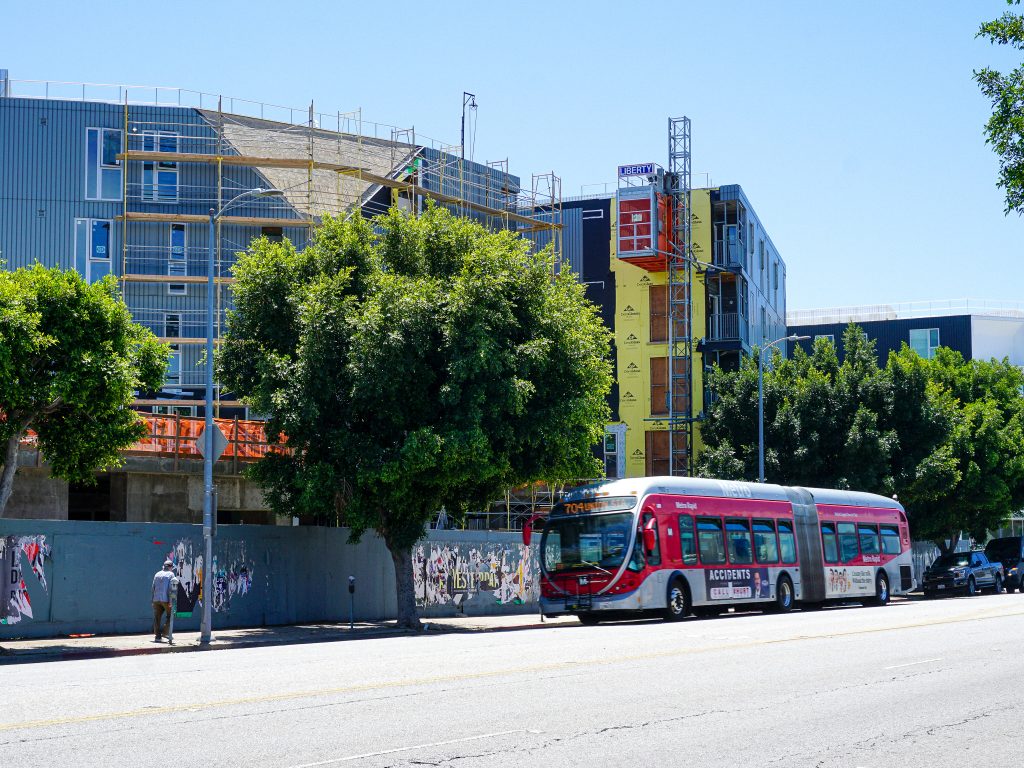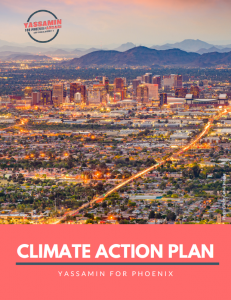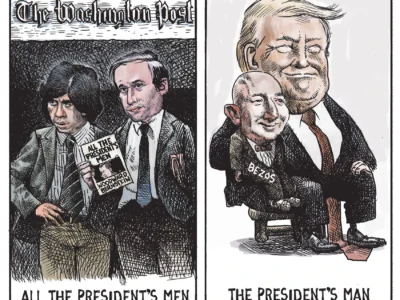Climate Candidates Notch Victories in Major City Council Races Across Western U.S.
Voters choose new candidates with strong climate platforms in Los Angeles, Phoenix, San Diego, and other large cities across the West
While ballot counting continues across the country, city council races are now being called, with new climate champions set to take office in large Western U.S. cities that held elections this week. Many of the victors are taking on their first elected positions.
Candidates with inspiring and ambitious climate platforms notched victories in six large Western U.S. cities: Los Angeles, Phoenix, San Diego, San Jose, San Francisco, and Portland. Other large cities by population (Seattle, Denver, Las Vegas, and Albuquerque) did not hold city council elections in this cycle.
City leadership is important for advancing climate action but new research finds U.S. cities falling behind. In practice, city councilmembers frequently make decisions that advance or stall climate action in areas where powerful incumbents often resist change, like buildings, land-use, transit, safe streets, and electricity generation.

While not a certain predictor for candidates’ future voting record (nor fully accounting for complex local dynamics that can shape decisions), campaign platforms provide a roadmap for a governing agenda–and for constituents to hold their elected officials accountable. Successful campaigns with strong climate messages also send a signal to other officials that voters support ambitious action.
Below is a closer look at major city council elections (in order of each city’s population):
– In Los Angeles, Nithya Raman scored a major upset in District 4 over incumbent David Ryu, a first-term councilmember endorsed by establishment Democratic figures like Nancy Pelosi and Hilary Clinton. Councilmember Mike Bonin called Raman’s win a “progressive earthquake and a transformative moment.” Raman’s grassroots campaign was supplemented with detailed policy plans, including an extensive environmental policy platform (also published in Spanish) that set out specific objectives on clean electricity generation, building efficiency and building electrification, transit and street design, water conservation, and a new buffer around oil and gas operations in the city. In District 10, former county supervisor Mark Ridley-Thomas won office with a platform that emphasized a transition to transit, electric vehicles, and safer walking and biking while mitigating urban heat with tree planting and cool roofs.
– In Phoenix, standout climate candidate Yassamin Ansari took first place in a five-way race for District 7, which will now go to a runoff election in March 2021. In a professional career devoted to climate issues, Ansari has worked at the UN and with former Governor Jerry Brown and former UNFCCC secretary Christiana Figueres on a range of international climate projects, while maintaining close ties to her home city. Ansari’s deep experience shows in her remarkable 20-page climate plan, which makes a number of specific policy proposals for Phoenix such as installing electric vehicle charging stations, penalizing industrial air pollution violators, expanding light rail lines, and providing rebates for water efficient appliances.

– In San Diego, Sean Elo-Rivera won a council seat in District 9 with a strong climate platform, including an 11-page climate plan describing support for a San Diego Green New Deal that goes beyond the city’s existing Climate Action Plan. Elo-Rivera’s plan also proposes policies to increase access to parks and open space and invest in safe streets and transit, including support for the regional planning agency’s transformative vision for regional transportation.
– In San Jose, candidates for two open city council seats showed a commitment to climate action. In District 4, David Cohen pulled ahead of incumbent Lan Diep. Cohen’s agenda included objectives for carbon neutral city buildings, bike and pedestrian safety, and extending BART and light rail. In District 6, incumbent Dev Davis beat challenger Jake Tonkel, whose policy platform spoke specifically to environmental justice and environmental racism issues in San Jose. Davis touted her support for San Jose’s climate plan, released last year, and a new San Jose community choice energy program. Davis also supports street safety improvements and better transit integration with regional rail.
– In San Francisco, voters cast ballots in six city council races, with a range of candidates chosen by ranked choice in each district. In District 1, where the victor has not been decided, Connie Chan worked in early stages of her career to close the fossil gas Potrero Generating Station and her campaign has proposed climate resiliency projects, a green workforce development program, and free or low-cost transit options for working people, and affordable clean energy options. District 1 contender Marjan Philhour has an environment platform notable for its emphasis on building more dense housing in the city, with an explicit rebuke to locals who oppose new construction. “‘San Francisco is full, move to Tracy” might be a politically popular stance to take here in San Francisco, but it is not a climate-friendly stance,” the candidate writes. Philhour’s platform also mentions two issues dear to the heart of Legal Planet readers: California Environmental Quality Act (CEQA) reform and policies oriented around reducing vehicle miles traveled (VMT).
– In Portland, Mingus Mapps beat incumbent Chloe Eudaly to win Position 4, the only City Commission seat on voter ballots in this cycle. Mapps will be the third Black commissioner in Portland’s history. Mapps listed the environment among his top priorities, with proposals for considering environmental justice and equity in city decision-making; lowering costs or eliminating fees for transit systems; improving greenhouse gas emissions inventories; and opposing freeway expansion and other fossil fuel infrastructure proposals.
Climate champions are needed at all levels of government – and local elections are a place where individuals can make a big difference for their communities. Organizations like Lead Locally, EveryDistrict, and Run For Something, among others, are focused on supporting progressive candidates in local races. With city council races and other municipal elections slated for 2021 and 2022, local races are an important space to watch for climate advocates.
Correction: The author misread San Francisco’s ranked-choice campaign results. In District 1, the race is too close to call and in District 7, Myrna Melgar claimed a victory over Joel Engardio (whose policy platform on dogs I had previously mentioned). This blog post has been updated accordingly. Thank you to a Legal Planet reader for pointing out the error.
Reader Comments
3 Replies to “Climate Candidates Notch Victories in Major City Council Races Across Western U.S.”
Comments are closed.







Good article, but Joel Engardio did not win the District 7 seat on the San Francisco Board of Supervisors. This seat was filled by a Ranked Choice election. Engardio won round one, but the final victor was Myrna Melgar, a much greener candidate.
Thanks Marty for flagging my error – I misread the election result. I will update.
Hi
Wonderful!
Please Sirs
May we account THE LOOMING NATIONS OVERINDEBTEDNESS CRISES ?
Very many thanks in Christ Jesus.
#